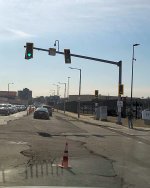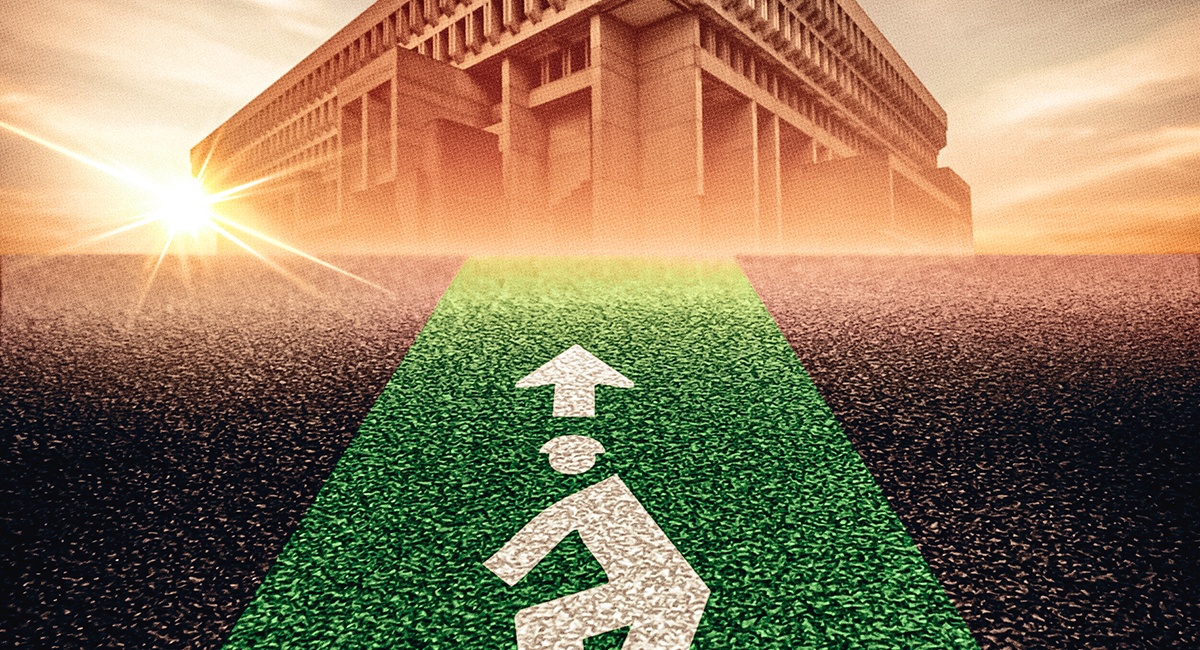City Hall’s ambitious plan to reshape Boston’s streets has ignited a battle over who really controls the town’s future—and exposed an identity crisis long in the making.

www.bostonmagazine.com
I lived right next to Big Daddy's back when I lived in Brighton. The business is dying because it's trying to run the same operation it did in 2010, when the market in that area has entirely changed over the past 15 years. Huge portions of mediocre food at cheap prices appealed to me when I was a broke student living among broke students there, but that isn't the neighborhood anymore. First the dive bars went away and were replaced by trendier restaurants. Tons of new development started to come into the area. Boston Landing opened. The Breakfast Club died. Then bike lanes came....and we're expected to take at face value that the bike lanes are the only variable and the reason for this business closing? Give me a break. I really wish media outlets were more willing to push back on business owners talking out their ass.
Oh boy. I thought we were past this kinda of sloppy "op-ed disguised as reporting" kinda thing. This piece is like playing bingo for all the tired anti-bike lane tropes. Very little data, small-minded, windshield bias, all while parroting ignorant talking points that aren't backed by real-world evidence globally or locally:
You've got the local small business owner(s) complaining that their ostensibly
loyal customers can't be bothered to park a short walk away to patronize their business:
“They’re killing my business,” Singh says. “I’ve had customers say they’re gonna stop coming because they can’t park. They leave sometimes without picking up their order because they can’t pull over.”
You've got anonymous complaints from purported "cyclists" who say that the bike lanes have gone too far:
In a recent series of privately funded focus groups of Boston residents, organizers were stunned at the ferocity of opinion on the issue. “The groups universally felt that the bike lanes have gone too far,” reads a summary of the discussions. “Even cyclists agreed with the complaints. The bike lanes make it difficult to get around and take up parking spaces. For many, the salt in the wound is how the bike lanes (along with the bus lanes) are largely unused. This is a sore spot voters have with Wu.”
You've got an attempt to impose some sort of ideological battle lines, or impose some sort of grand thesis statement, when in reality, many changes in the urban fabric, whether new housing, new businesses, or street redesigns, always upset a small subset of the population who like to complain loudly. (As is their right.)
Bike lanes have become an ideological proxy battle where many major tensions converge—young versus old, cyclists versus drivers, urban versus suburban, business owners versus city visionaries, longtime residents versus newcomers.
You've got lazy reporting with no attempt to validate or fact check anything the "critics" are saying. What the hell is a "citywide chorus"? How are you measuring travelers? Just commute data? What is the actual amount of street space taken up by people commuting by bike? By car? By transit?
But a citywide chorus of critics is saying the bike lanes—used by a single-digit percentage of travelers—aren’t making it easier for the vast majority of residents and visitors to move around.
You've got, of course, the classic "it's too cold to bike" offhand comment. Easily debunkable with global examples, but also, have you noticed that people do actually bike year-round in Boston? And the number is increasing every year.
...and Boston’s frigid weather can render biking moot for even the most dedicated cyclist.
You've got braindead anecdotal "examples" that make no sense. How did the author know who arrived by bike? Wouldn't the fact that 14 of the 18 docks in the Bluebikes station--oops, I mean
rental stand--be a sign that the dock is well-used? It's not like there's Bluebike data available online or anything?
Right?
Customers filled the Apple store, but there was no sign any of them had arrived by bike; at the nearby Bluebikes rental stand, bicycles sat unused in 14 of the 18 portals.
You've got the neighborhood association executive quote and an offhanded barb about deserted bike lanes:
“They took a functional neighborhood that had capacity and a business organization that supported bike lanes and created an unworkable street configuration,” says Meg Mainzer-Cohen, executive director of the Back Bay Association. At least the deserted bike lane on Boylston was serving one unexpected purpose: A pedestrian using mobility aids was able to avoid the crowded sidewalk
You've got the complete ignorance of the fact that cargo bikes exist, and that people use them. And another business owner who *thinks*, but doesn't actually have any data to back up the vibes, that most of the local patrons are suburbanites who drive into the South End.
Setting aside the wisdom of trying to take stained glass home in a bike pannier, most of his customers—and, he suggests, many who patronize South End restaurants and shops—don’t live within biking distance.
However, I think the most pernicious thing about this framing is the constant validation of complaints about lack of public process, e.g.:
And beneath the heated arguments over parking spaces and traffic flow lies a far more profound question that’s tearing at the fabric of neighborhoods across the city: Who gets to decide what Boston becomes?
The voters do. The voters elected Mayor Wu on a strong pro bike lane platform. If the voters are upset with the steps the Wu admin is taking in terms of allocating street space, they can vote her out in the next election.
The South End Business Alliance’s Randi Lathrop, a development consultant, urban planner, and former Boston Redevelopment Authority staffer under Menino, recalls both Menino and Walsh engaging in an “intense public process” that often resulted in changes to or withdrawal of city plans. But she finds the Wu administration oblivious to community concerns. “They listen but do what they want anyway,” she says. “Their attitude is ‘We own the streets, so we’re gonna do what we want.’”
You know the primary way the actual community, not a few neighborhood or business associations, or a handful of loud angry voices, actually voices its preferences? By voting.
This quote from former Mayor Walsh is also rich. What if a community doesn't want cars blocking crosswalks, parking on the sidewalk, or driving down their local streets? Such ideas are rejected as absurd because of this city's inability to envision a future where people cannot drive their personal automobile anywhere they want at any time and park it as close to their destination as possible at any time of day.
Walsh disagrees sharply. “No community should be forced to have [a bike lane] if they have valid concerns,” he insists.
More quoting critics of bike infrastructure, again, who provide
zero evidence for their claims, this time from the disastrous PC policy in the province of Ontario:
As she looks to the future, though, it may also be wise to look north. It’s game on right now in the progressive environs of Toronto, where the Ontario provincial government last fall cleared the way for the removal of three controversial bikeways in downtown, citing the need for, as Transportation Minister Prabmeet Sarkaria put it, “a common-sense approach to installing bike lanes on city streets to ensure they don’t impede the flow of traffic.
Idk, maybe you should ask your customers. Or think for five seconds about the fact that a big portion of UberEats, DoorDash, etc. deliveries are done by bike.
Over on Western Avenue, though, Big Daddy’s manager is still begging for some moderation. “Why did they put in two lanes? Why not just one?” asks Singh, who offers some street wisdom Wu might be wise to heed. “She’s gonna be in trouble if this keeps up. Tell me: Who’s gonna take their pizza home on a bicycle?”
Again, this is an opinion piece masquerading as journalism. Either it's completely intellectually incurious and comically lazy to an astonishing degree, or a classic attempt of "but I'm just asking commonsense questions" as a way of opposing progress. I'm not even a Wu fan but I hope she gets re-elected and shuts down these bad-faith arguments for good.

 www.dotnews.com
www.dotnews.com




